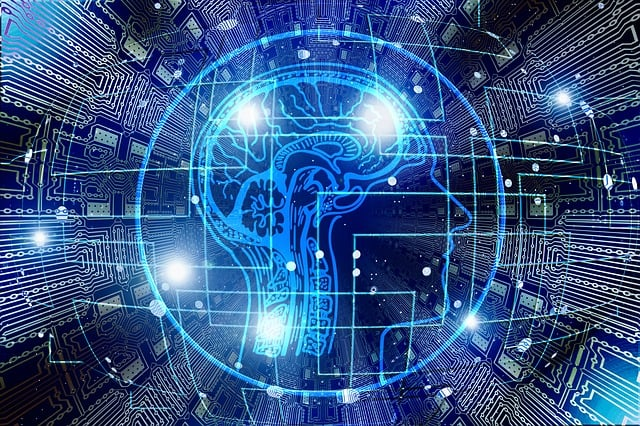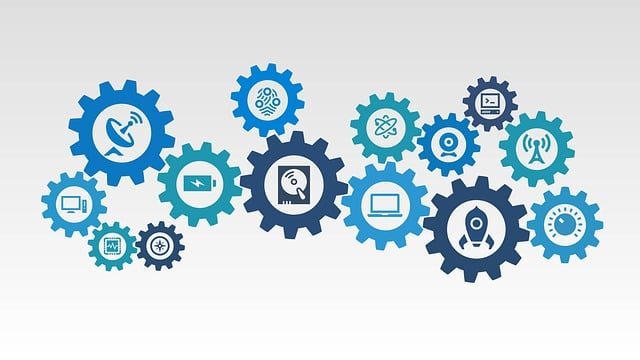Wondering what kind of benefit to DevOps process can be brought with AI? Wonder no longer. How can a DevOps Team Take Advantage of Artificial Intelligence AI – we’re answering it below.
So, How Can a DevOps Team Take Advantage of Artificial Intelligence AI?

Enhancing Automation in Continuous Integration/Continuous Deployment (CI/CD) Pipelines
Integrating AI into the DevOps environment transforms the software development process, enabling DevOps teams to leverage machine learning and AI systems to automate repetitive tasks and optimize resource allocation. This integration enhances DevOps processes through automated testing and continuous monitoring, pivotal in the software development lifecycle.
Implementing AI not only aids in optimizing resource allocation but also empowers AI-powered solutions to streamline the DevOps process. By adopting AI in DevOps, teams can utilize machine learning techniques and data analysis to ensure more reliable software releases.
Development and operations teams can implement AI to proactively identify potential issues using machine learning algorithms and AI-enabled monitoring tools. These AI models automate testing within the development process, helping to identify patterns and predict system failures.

By adopting AI, DevOps teams can automate routine tasks, effectively leverage AI for performance metrics, and train AI models for complex tasks. AI technology in the DevOps environment, particularly AI-powered testing tools and AI-driven predictive analytics, significantly enhances automation, ensuring high data quality and more efficient software releases.
AI integration in DevOps combines software development and operations, utilizing AI solutions to analyze historical data and automate testing processes, leading to a more efficient and effective software development process. For example, an electric vehicle (EV) charging point operator (CPO) might use AI-driven insights to aid the development of a new CPO platform.
Predictive Analytics for System Outages and Performance Issues for How can a DevOps team take advantage of artificial intelligence AI
Predictive Analytics, empowered by AI technologies, is revolutionizing DevOps practices, particularly in preempting system outages and performance issues.
This approach involves integrating AI-powered tools into the testing process, enabling a more proactive stance in identifying and resolving potential system vulnerabilities. Virtual assistants and AI-enabled tools are becoming integral in assisting DevOps teams, not only in automating routine tasks but also in enhancing overall automation efficiency.

The continuous improvement of computer systems is a core aspect of AI implementation in DevOps. These AI-enabled DevOps tools are designed to learn from data, even from instances of poor data quality, to refine their predictive capabilities. By leveraging AI-powered tools, DevOps teams can better anticipate and mitigate risks, leading to more reliable and robust system performance.
The integration of AI in DevOps is not just about automating tasks; it’s about transforming the way teams approach system reliability and efficiency. AI technologies in DevOps are instrumental in driving forward a more agile, responsive, and resilient testing and monitoring process, ensuring continuous system optimization and improvement.
AI-Driven Code Quality Analysis and Optimization
Integrating AI into DevOps processes offers a significant advantage for teams aiming to enhance code quality and optimization. By leveraging AI tools, a DevOps team can take advantage of artificial intelligence to automate repetitive tasks in the software development lifecycle, particularly in code analysis. AI systems, equipped with machine learning algorithms, can analyze vast amounts of code to identify patterns and anomalies that might escape manual review.

This AI-driven approach to code quality ensures that the DevOps team can focus on more complex aspects of software development, while AI models handle the routine but critical task of ensuring code integrity. Implementing AI in DevOps not only streamlines the development process but also elevates the standards of code quality through predictive analytics and automated testing.
Moreover, continuous integration benefits immensely from AI integration. AI algorithms can predict potential issues before they arise, allowing the DevOps team to proactively address them. This predictive capability of AI in DevOps enhances automation, making the development and operations teams more efficient and effective.
Automated Security Vulnerability Detection and Patching for How can a DevOps team take advantage of artificial intelligence AI
DevOps teams are increasingly recognizing the advantage of artificial intelligence in enhancing their security protocols. AI systems, with their advanced algorithms, play a crucial role in automated security vulnerability detection and patching.
This integration of AI in DevOps practices allows teams to proactively identify and address security threats, significantly reducing the risk of breaches.
The use of predictive analytics in AI algorithms enables a DevOps team to foresee potential security vulnerabilities, even before they are exploited.

This foresight is critical in maintaining the integrity and security of systems. Automated testing, another key aspect of AI in DevOps, further bolsters security measures by continuously scanning for vulnerabilities and applying necessary patches without human intervention.
By taking advantage of artificial intelligence, DevOps teams can automate much of the routine security monitoring, allowing them to focus on more complex and strategic security concerns.
AI-Based Performance Tuning and Resource Optimization
DevOps teams are increasingly leveraging artificial intelligence to enhance their performance tuning and resource optimization.
By integrating AI into their DevOps practices, teams can significantly improve the efficiency and effectiveness of their systems. AI in DevOps enables automated testing and monitoring, which are essential for identifying performance bottlenecks and optimizing resource allocation.

The use of AI allows a DevOps team to take advantage of predictive analytics and machine learning algorithms. These technologies can analyze system performance data in real-time, enabling the team to make informed decisions about resource allocation and system tuning.
This proactive approach to performance management ensures that systems are running at their optimal capacity, reducing downtime and improving user experience.
Furthermore, AI-driven solutions in the DevOps process can automate many of the routine tasks associated with performance tuning. This automation frees up the DevOps team to focus on more strategic initiatives, enhancing their productivity and efficiency. By taking advantage of artificial intelligence, DevOps teams can ensure that their systems are not only more reliable but also more adaptable to changing demands and workloads.
Intelligent Monitoring and Real-Time Alerts for Software Development Proces
DevOps teams can significantly enhance their monitoring capabilities by leveraging AI solutions. Artificial Intelligence (AI) in DevOps enables intelligent monitoring systems that not only track system performance but also provide real-time alerts for any anomalies or issues.

This proactive approach assists DevOps teams in maintaining system health and performance. AI-enabled DevOps tools can analyze vast amounts of data quickly, identifying potential problems before they escalate. By enhancing automation in monitoring processes, AI ensures that teams are alerted immediately, allowing for swift responses to any operational issues.
AI-Assisted Incident Management and Resolution in Devops Teams for How can a DevOps team take advantage of artificial intelligence AI
AI-assisted incident management is transforming how DevOps teams handle system disruptions. By integrating AI into their processes, teams can leverage AI to quickly diagnose and resolve incidents. AI solutions in DevOps can analyze patterns and correlations in data, leading to faster identification of the root causes of incidents.
This capability significantly reduces downtime and improves system reliability. AI-enabled DevOps tools not only detect incidents but also suggest potential solutions, streamlining the resolution process and aiding teams in managing complex system landscapes more effectively.
Optimizing Test Automation with Integrating AI Algorithms
Optimizing test automation is another area where DevOps teams can leverage AI. AI algorithms can be used to enhance the efficiency and effectiveness of automated testing processes. By analyzing past test results and identifying patterns, AI can optimize test cases and improve coverage, ensuring that critical aspects of the app are tested thoroughly during application performance monitoring (APM). In the observability vs APM debate, AI can actually be used to improve both approaches.

This leads to higher quality software and faster development cycles. AI solutions in DevOps can also predict which areas of the application are more prone to defects, allowing teams to focus their testing efforts more strategically. This not only enhances automation but also contributes to the overall quality and reliability of software products to assist devops teams.
Data-Driven Decision Making in DevOps Strategy
Incorporating data-driven decision making into DevOps strategy allows teams to make more informed and effective choices.
By leveraging the vast amounts of data generated during software development and operations, DevOps teams can use AI tools to analyze and interpret this data, identifying trends, patterns, and potential areas for improvement.
This approach leads to more strategic resource allocation, process optimization, and overall enhancement of the DevOps lifecycle. AI-driven insights help in fine-tuning strategies for efficiency, reliability, and faster deployment, ensuring that decisions are backed by concrete data rather than intuition.
AI-Enhanced User Experience and Interface Design
AI technologies are revolutionizing user experience (UX) and interface design in software development. By understanding user behaviors, preferences, and feedback, AI can assist in creating more intuitive and user-friendly interfaces. This leads to improved user engagement and satisfaction.
AI can analyze user interaction data to suggest design improvements, personalize user experiences, and predict future user needs. In DevOps, this translates to software that is not only functionally robust but also excels in user-centric design and usability.
Automated Compliance and Regulatory Adherence
AI can significantly streamline the process of ensuring compliance and regulatory adherence in software development.
Automated tools can scan code, configurations, and deployment environments to ensure that they meet the required standards and regulations.
This automation reduces the manual effort required for compliance checks and minimizes the risk of human error. AI-driven compliance tools can stay updated with the latest regulations, automatically adjusting checks and balances, thus ensuring that software products are always in compliance with industry standards.
AI-Powered Log Analysis and Anomaly Detection for How can a DevOps team take advantage of artificial intelligence AI
AI-powered log analysis tools can process and analyze large volumes of log data to detect anomalies, potential system issues, or security threats.
By using machine learning algorithms, these tools can learn from historical data to identify patterns and flag irregularities that might indicate problems.
This capability is crucial for proactive system maintenance, security monitoring, and troubleshooting. In DevOps, such real-time anomaly detection ensures that systems are more resilient, secure, and consistently performant.
Enhancing Collaboration and Communication with AI Tools
AI tools can also play a significant role in enhancing collaboration and communication within DevOps teams.
AI-driven chatbots, virtual assistants, and collaborative tools can facilitate more efficient communication, automate routine inquiries, and provide quick access to information and resources. This leads to improved team coordination and productivity.
AI can also analyze communication patterns to suggest optimizations in workflows, helping teams work more cohesively and effectively. In a field that relies heavily on teamwork and agile responses, AI-enhanced communication tools can be a game-changer.
Key Takeaways on How can a DevOps team take advantage of artificial intelligence AI
- AI integration in DevOps enhances automation, efficiency, and accuracy in processes like testing, monitoring, and code analysis.
- AI-driven tools assist in predictive analytics for system performance and security vulnerability detection.
- AI enhances user experience and interface design, leading to more intuitive software products.
- Automated compliance and regulatory adherence are streamlined through AI, ensuring industry standards are met.
- AI tools improve collaboration and communication within DevOps teams, optimizing workflows and team productivity.
Conclusion
Incorporating AI into DevOps brings a transformative impact, streamlining processes, enhancing efficiency, and ensuring higher quality outputs. From predictive analytics to improved user experiences and compliance adherence, AI’s role in DevOps is pivotal in driving innovation and operational excellence. To ensure the right incorporation of AI, consider hiring a DevOps engineer to help with the process.
FAQ on How Can a DevOps Team Take Advantage of Artificial Intelligence (AI):
How can a DevOps team take advantage of artificial intelligence AI in Accenture?
A DevOps team at Accenture can leverage AI to automate complex workflows, enhance decision-making with data-driven insights, and improve operational efficiency. AI tools can be used for predictive analytics, optimizing resource allocation, and ensuring high-quality software delivery.
How can DevOps team take advantage of AI brainly?
On platforms like Brainly, DevOps teams can take advantage of AI by sharing knowledge and solutions, learning from AI-driven analytics and case studies, and implementing best practices in AI integration for process optimization and problem-solving.
How we can use AI in DevOps?
AI can be used in DevOps for automating routine tasks, enhancing code quality through AI-driven analysis, optimizing testing processes, and providing real-time insights for performance and security management.
How can DevOps take advantage of?
DevOps teams can benefit from AI by adopting tools for automated testing and deployment, utilizing AI for predictive maintenance, improving system reliability, and enhancing collaboration through AI-assisted communication tools.
What is a benefit DevOps brings to the way a company works Accenture TQ?
DevOps brings a significant benefit to Accenture by fostering a culture of continuous integration and delivery. This approach enhances collaboration between development and operations teams, leading to faster time-to-market, increased efficiency, and higher quality software solutions. DevOps at Accenture also supports a more agile response to market changes and client needs, ensuring that the company remains competitive and innovative in its service offerings.
What are key objectives of DevOps at Accenture answer?
The primary objectives of DevOps at Accenture include improving collaboration between development and operations teams, enhancing the speed and quality of software delivery, and ensuring more efficient and effective response to customer needs. Additionally, DevOps aims to automate processes where possible, reduce the time for software releases, and integrate security measures throughout the development lifecycle, aligning with Accenture’s commitment to delivering high-quality and secure solutions to its clients.
What is the need for DevOps and advantages of DevOps?
The need for DevOps arises from the increasing demand for faster, more efficient, and reliable software delivery in today’s fast-paced digital world. Advantages of DevOps include improved collaboration between teams, faster deployment cycles, higher software quality, and enhanced customer satisfaction. DevOps also brings about a cultural shift in organizations, promoting transparency, continuous learning, and adaptability. This leads to more innovative solutions and a more resilient approach to managing complex software environments.
